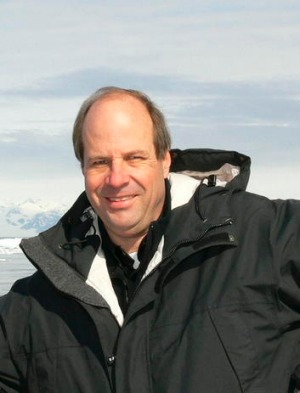
Inscrutable Antarctica continues to reveal itself to this explorer.
Q How many times have you sailed to Antarctica?
A I've been on about 20 voyages. My first was in 1983 on the maxi-yacht Anaconda II. We took three weeks to sail from Fremantle to sub-Antarctic Heard Island. Every shower of freezing spray seemed worth the pain and discomfort once we arrived at what I still regard as the most beautiful place I've ever visited. My recent voyages have had considerably more comfort and safety; I've been a lecturer and field guide on tourist voyages from Hobart or New Zealand.
Q What is the longest you've spent there?
A About eight weeks during the summer of 1997-98, working at Cape Denison on the first phase of an ongoing historic conservation program at the site of Douglas Mawson's exploratory base. I was there as the artist and photographer for the Mawson's Huts Foundation.
Q What is the biggest misconception about the place?
A That Antarctica is always bitterly cold. The lowest temperatures ever recorded (below minus 80 degrees) have occurred on the Antarctic plateau but coastal summer temperatures in Antarctica can be about 3 to 5 degrees. On a sunny day on the Antarctic coast you can strip down to a T-shirt. But when the wind begins to blow, that's a different matter.
Q Do you take global warming seriously?
A Of course. I think we disregard the warnings at our peril.
Q Which medium do you think captures Antarctica the best?
A I don't think one can ever truly "capture" Antarctica. It is such an unknowable and unfathomable place - too vast to comprehend. Personally, I'm most challenged by trying to paint Antarctica either in situ, or in my studio.
Q How has Antarctica changed you?
A It teaches you that nature is ultimately in control. It has taught me humility.
Q Three words that best describe Antarctica?
A Dazzling, scintillating, inscrutable.
Q How can it best be protected?
A By valuing the region for its own sake and also for the influence Antarctica's natural systems have on the planet. Understanding and knowledge are the keys to protection.
Interview by Jane Reddy